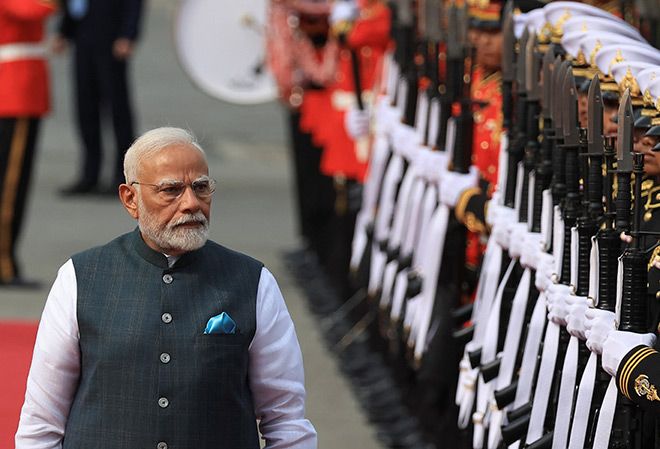The Japanese government plans to revise its goals for private-sector investment in India to 10 trillion yen ($68 billion) over the next 10 years, a source close to Japan-India relations said.
Prime Minister Shigeru Ishiba and Indian Prime Minister Narendra Modi are expected to confirm the new target during their meeting in Tokyo on Aug. 29, the source said.
This plan will expand upon Japan’s current goal of investing 5 trillion yen over five years, which was announced in March 2022 by then-Prime Minister Fumio Kishida during his visit to India.
Japanese businesses have since invested nearly 1 trillion yen in India every fiscal year on average. The government plans to update the target to further encourage investment by the private sector.
Modi’s visit to Japan is scheduled to run from Aug. 29 to Aug. 31.
The two governments also plan to launch an Economic Security Initiative, a new bilateral cooperation framework to address economic security challenges, such as ensuring stable supplies of critical materials and guaranteeing the safety of core infrastructure.
The initiative will prioritize key areas including semiconductors, critical minerals, telecommunications, clean energy, pharmaceuticals and scientific fields such as artificial intelligence.
Avenues for discussions will be created among businesses as well as between the governments.
An AI Cooperation Initiative will be established to specifically advance collaboration in AI technology and startups.
Additionally, a project called Digital Partnership 2.0 will be developed to expand economic collaboration beyond manufacturing to encompass emerging technological fields, such as semiconductors, AI and startups.
In the clean energy sector, Japan and India will issue a Joint Statement on Energy Dialogue aimed at promoting cooperation to simultaneously achieve decarbonization, economic growth and energy security.
The two countries are expected to announce the introduction of the Joint Crediting Mechanism, a bilateral system that allows Japan to count carbon emissions cuts achieved by spreading its greenhouse gas-reducing technologies in India toward its own reduction targets.
The government is also considering setting targets to expand people-to-people exchanges with India, such as “more than 500,000 people coming and going over five years” and “accepting 50,000 Indian nationals (in Japan).”
As part of India’s first high-speed rail project, which is based on Japan’s Shinkansen technology, an agreement is expected to be reached on the introduction of the next-generation E10 series bullet train under development by East Japan Railway Co.
During his visit to Japan, Modi will attend meetings where Japanese and Indian companies are expected to sign more than 100 memorandums of understanding, including those on investment projects.
Japan and India will also revise the Joint Declaration on Security Cooperation during Modi’s visit—the first time it will be amended since its formulation in 2008.
The current declaration covers cooperation between the foreign affairs, defense and maritime security authorities of the two countries.
Ishiba and Modi plan to agree on arranging a meeting of their foreign and defense ministers at an early date.


AloJapan.com